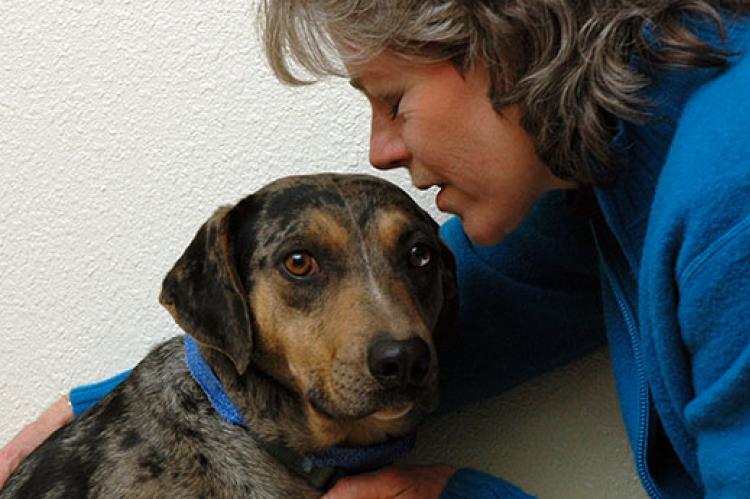Dog Scared of Loud Noises

Some dogs have a fear of loud sounds, such as thunder, firecrackers, and cap guns. Often, a dog will try to run from a frightening sound, or, if unable to run, will become destructive trying to escape.
If you do not help to calm your dog’s fear, she may injure herself, run away, or wreak havoc on your home in her desperation to get away from the fearful noise. Here are some tips for helping a dog who is prone to fear.
Storms
If you know that a storm is coming, turn on some music or your TV to muffle the sound of the thunder. Create a safe place in your home for the dog. Let your dog show you where: If he goes to a favorite spot, make a nice bed there. Encourage him to rest there with you and, if he does relax, offer him a food-filled Kong or bone. Allow him to leave that spot and return to it if he wants.
Do not put a frightened dog in a crate and leave. Though his crate may normally be a safe place for him, he may feel trapped in there if he’s frightened during a storm. He could injure himself badly trying to get out of the crate.
As the thunder gets louder, he may not be able to stay relaxed with his treat. You can try to play a favorite game with him or hand-feed him a really special treat. If he does not calm down, just be with him and try to reassure him. There are also several products you can buy that may help reduce your dog’s anxiety. Try a Thundershirt or BlackWing Farms remedies.
Behavior modification
If your dog’s fear is not extreme, you may want to try behavior modification. Here’s how it works: Get a recording of storm sounds (or whatever the offending noise is) and play it at very low volume while you engage your dog in activities she likes. You can play games with her, groom her, hand-feed her, or practice cues she knows in return for treats. If she is fine with that volume, practice the next day with the volume turned up a bit. Continue raising the volume a little each day as you involve her in pleasurable activities.
This method gradually desensitizes the dog and, over time, she finds the noise less fearful. If she becomes fearful at any point, lower the volume to a level where she is comfortable and proceed more slowly. If your dog’s fearfulness is severe, you may need help from your veterinarian and a behavior specialist.